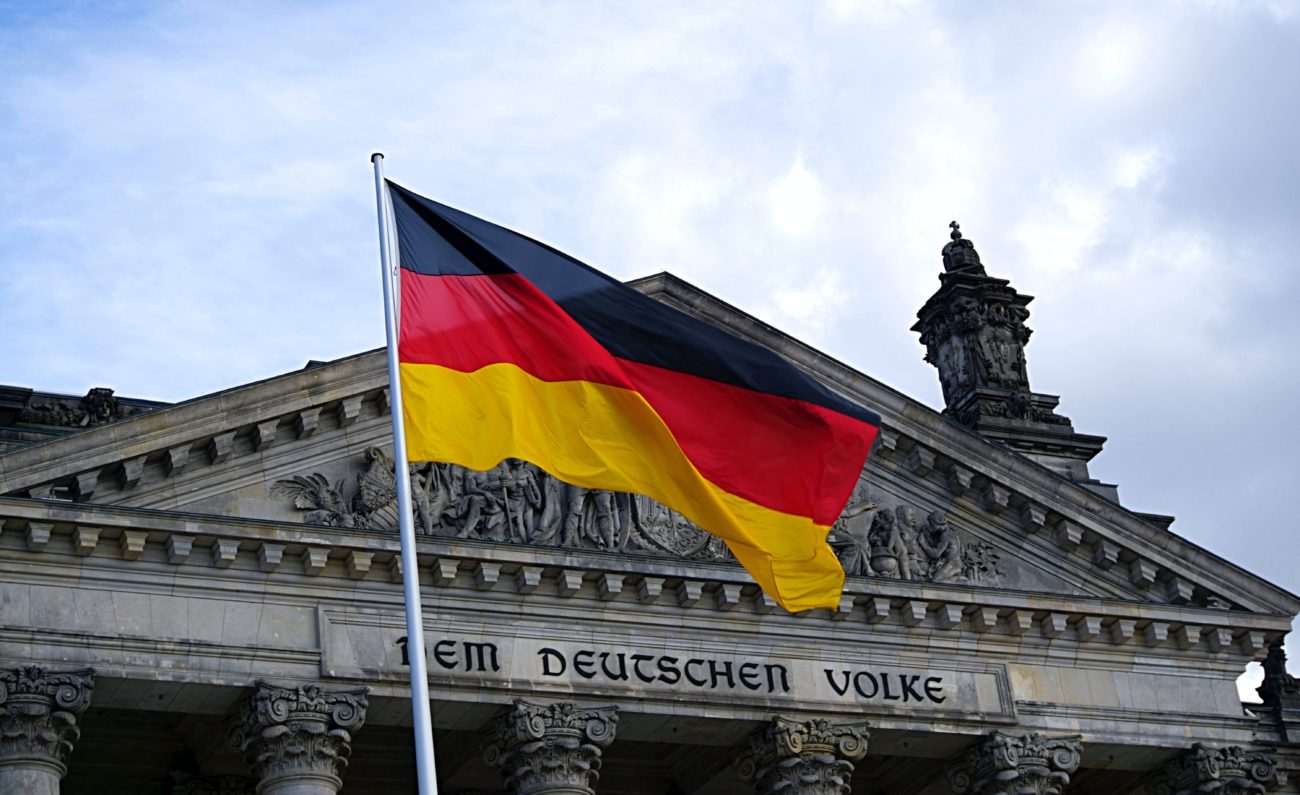Is Online Gambling Illegal In Germany
Historical, artistic, and distinctive; these are three adjectives that impeccably describe Germany. This Western European country and its famous territories (Berlin, Munich, and Frankfurt) are widely known and visited by millions of tourists each year. Among the most iconic features include the European Central Bank, the 16th-century Hofbräuhaus, beer halls, Munich’s Oktoberfest, the Brandenburg Gate and its beautiful North Sea beaches. On top of all this, Germany is also one of the biggest gambling destinations in the world.
Online Gambling Outlawed in Germany Online gambling is illegal in Germany today. That is the official line, at least. That line does tend to blur a little when we look at the state of play when it comes to German gambling as we approach the third decade of the 2000s.
List of Casinos in Germany
The number of online gambling websites around the world suddenly ballooned from a handful to hundreds. By 1998, reports suggested online gambling revenues were upwards of $800 million. US LAWMAKERS START LOOKING. A year later, the US Senate made its first attempt to ban online gambling, introducing the Internet Gambling Prohibition Act. German Online Gambling Law. Germany’s online gambling laws have been a source of strife and ridicule for most of the past 10 years. The state and federal governments cannot come to an uniform set of policies regarding online gambling. Online sportsbooks continue to operate, but the European Union believes Germany protects its domestic gaming.

Below is a list of all casinos currently operating in the regions of Germany.
27 All Inn
Aquamarin Casino Seevetal
Automatencasino Bremen
Automatenspiel der Spielbank Konstanz
Automatenspiel der Spielbank Osnabruck
Automatenspiel Mundsburg
Automatenspiel Steindamm
Automatenspiel Wandsbek
Automatenspielbank Gorlitz
Bayerische Spielbank Bad Füssing
Bayerische Spielbank Bad Kissingen
Bayerische Spielbank Bad Reichenhall
Bayerische Spielbank Bad Steben
Bayerische Spielbank Bad Wiessee
Bayerische Spielbank Feuchtwangen
Bayerische Spielbank Kotzting
Bayerische Spielbank Lindau
Casino Aachen
Casino Altmarkt
Casino Bad Oeynhausen
Casino Berlin and Forum Hotel Berlin
Casino Bremen
Casino Bremerhaven
Casino Erfurt
Casino Flensburg
Casino Frankfurt-Airport
Casino Glüeckspilz
Casino Homburg
Casino Kiel
Casino Ludwigspark
Casino Neunkirchen
Casino Petersburg
Casino Saarlouis
Casino Schenefeld
Casino Schloss Berg
Casino St. Wendell
Casino Westerland-Sylt – Strandcasino
Das Kasino Reeperbahn
Harzburger Rendering
Kurhessische Spielbank Bad Wildungen
Kurhessische Spielbank Kassel
Lysia Clubsino Lubeck
Merkur Spielbank Leuna-Günthersdorf
Merkur Spielbank Magdeburg
Ostsee-Spielbank Leinsdorf
Ostsee-Spielbank Stralsund
Spielbank am Nürburgring
Spielbank Bad Bentheim
Spielbank Bad Durkheim
Spielbank Bad Ems
Spielbank Bad Harzburg
Spielbank Bad Homburg
Spielbank Bad Kotzting
Spielbank Bad Neuenahr
Spielbank Bad Pyrmont
Spielbank Bad Zwischenahn
Spielbank Baden-Baden
Spielbank Berlin
Spielbank Berlin – Ellipse Spandau
Spielbank Berlin – Fernsehturm
Spielbank Berlin – Nahe KU’DAMM
Spielbank Berlin – Neukölln
Spielbank Borkum
Spielbank Chemnitz
Spielbank Cottbus
Spielbank Do-Hohensyburg
Spielbank Dresden
Spielbank Duisburg
Spielbank Garmisch-Partenkirchen
Spielbank Gottingen
Spielbank Halle
Spielbank Hamburg – Casino Esplanade
Spielbank Hamburg – Casino Mundsburg
Spielbank Hamburg – Casino Reeperbahn
Spielbank Hamburg – Casino Steindamm
Spielbank Hannover
Spielbank Kassel Bad Wildungen
Spielbank Kielounge
Spielbank Konstanz
Spielbank Lübeck – Casino Travemunde
Spielbank Mainz
Spielbank Norderney
Spielbank Osnabruck Vitischanze
Spielbank Osnabrück
Spielbank Potsdam
Spielbank Saarbrucken
Spielbank Schwerin
Spielbank Stuttgart
Spielbank Trier
Spielbank Warnemunde
Spielbank Wiesbaden
Spielbank Wolfsburg
Storm Casino Aschaffenburg
Storm Casino Bensheim
Storm Casino Frankfurt – Hanauer
Storm Casino Frankfurt – Kurt-Schumacher-Str
Storm Casino Frankfurt – Taunusstraße
Storm Casino Fulda – Altstadt
Storm Casino Fulda – Heidelsteinstraße
Storm Casino Kriftel
Storm Casino Mülheim
Storm Casino Simmern
History of Casinos in Germany
Throughout its history, Germany has witnessed a lot of social challenges. Its economy is considerably strong and the population is enormous. Gambling found its way into the territory as far back as the history of the country. When Germany was divided, gambling was (and still is) monitored by individual state authorities. While some embraced it, some perpetually wrote it off as a criminal act.
During the 17th century, gambling became a popular street activity. In 1765 and 1824, the very first (also one of the oldest casinos ever) and the second (built by architect Friedrich Weinbrenner) German casinos opened in Baden. Ever since more casinos have opened within the territory.
In 1872, however, all casinos were shut down following the country’s aim to unify. Fortunately, gambling was then legalized in 1933 and the casinos reopened. Further, the emerging wars and further challenges eventually put a pause to gambling within the regions. As wars were fought in the 20th century, the authorities could not regulate gambling facilities and activities anymore so gambling amongst the citizens became a street pastime and casinos shut down again. In 1950, those casinos finally reopened.
From the 1990s to 2000, gambling caught the attention of the united nation’s administration as an economy-benefitting industry. The growth was unprecedented as more and more casinos, racetracks, and cruise ships were established in the country.
Seeing this growth and lucrativeness, the administrative power of Germany decided to empower gambling and further regulate it properly. Nonetheless, the government played the monopoly card on the gambling industry after officially legalizing gambling in the late-20th century. The European Union, however, saw this monopoly as unlawful and enforced Germany to permit private companies and businesspeople to situate their gambling facilities within any German region.
According to the Federal Constitutional Court in March 2006, German sports betting industry was considered a monopoly, and operating against the German Constitution – and required to repurpose operations and comply to the laws before December 31st, 2007.
With more pressures from the European Union and the Federal Constitutional Court, Germany’s gambling industry was expected to be completely free by 2012. Today, German casinos and other gambling facilities are owned by private companies, foreign businesspeople, and – largely – by the government.
The laws are, however, controlled discretely by the 16 regions of Germany. That is, each region (Baden-Wurttemberg, Free State of Bavaria, Berlin, Brandenburg, Free Hanseatic City of Bremen, Free and Hanseatic City of Hamburg, Hesse, Mecklenburg-Western Pomerania, Lower Saxony, North Rhine-Westphalia, Rhineland-Palatinate, Saarland, Free State of Saxony, Saxony-Anhalt, Schleswig-Holstein, and Free State of Thuringia) can define its own laws, determine the limits, and state which gambling activity is legal or otherwise.
Meanwhile, the Ministry of Finance and the Ministry of Internal Affairs are in control of all gambling facilities and activities within all German regions. Additionally, the laws are complicated and more confusing than one could imagine. For one, some regions (or the casinos, precisely) welcome players 21 years or older while the minimum of some is 18 years. Advertising and marketing is another complicated issue, as well as the expected income per gambling house. Also, employees undergo a long list of training before and after becoming an employee. Lastly, a player can only enter with a valid ID.
Current Gambling Climate
Casino gambling and all forms of gambling are completely legal in Germany. Although the laws are strict, there are almost 400 gambling facilities in Germany. This means the level of variation is extremely high. Therefore, Germany is readily available to satisfy the gambling needs of any German citizen, resident or tourist.

The gambling scene in Germany is absolutely pleasant. In addition to the wide variety of games and gambling activities available, most casinos feature a restaurant, bar, nightclub, and discotheque – a perfect delivery of entertainment. Germany might not be completely attractive to tourists and visitors, but it is a decent country where one can enjoy the many varieties of gambling.
There are casinos, sports betting shops, cruise ships, racinos, racetracks, lottery operators, and bingo halls – all described by luxury or proficiency.
Casinos in Germany by Area
The 350+ casinos and other gambling facilities in Germany are evenly spread throughout the regions. Mostly, a city or town features a single casino while some offer between two and 11. Berlin, the capital of Germany, is the largest gambling area with 11 gambling facilities, more than 770 gaming machines, and over 17 table games.
Other areas with more than one gambling facilities include:
– Augsburg
– Bad Harzburg
– Bad Homburg
– Bad Oeynhausen
– Berg
– Bielefeld
– Braunschweig
– Bremen
– Bremerhaven
– Cologne
– Dortmund
– Duisburg
– Erlangen
– Essen
– Frankfurt
– Fürth
– Gelsenkirchen
– Göttingen
– Halle
– Hamburg
– Hameln
– Hannover
– Heilbronn
– Kiel
– Koblenz
– Leipzig
– Ludwigshafen
– Mannheim
– Mülheim
– Munich
– Münster
– Neu-Ulm
– Nürnberg
– Osnabrück
– Paderborn
– Saarbrücken
– Stuttgart
– Wiesbaden
– Wolfsburg
– Wuppertal
– Rostock
– Cuxhaven
– Dresden
– Düsseldorf
– Hassloch
– Krefeld
– Magdeburg.
When you account for all of the areas that have just one facility, there are even more options than just the areas listed above.
Furthermore, Spielbank Do-Hohensyburg (situated in Dortmund) is the largest gambling facility in Germany. The casino offers 400 gaming machines, 34 table games, and 10 poker tables. Spielbank Berlin – Fernsehturm is the second largest with five table games, four poker tables, and 260 gaming machines. Spielbank Kassel (Spielbank Kurfürsten Galerie) – offering one table game, 250 gaming machines, and three poker tables – is the third largest gambling facility in Germany.
Types of Casinos in Germany
There are almost 400 gambling facilities in Germany, definitely, there must be more than just casinos. The country features one of the highest numbers of cruise ships and racetracks in a single country – 14 and 48 respectively. The majority of casinos are situated in hotels and resorts but some are standalone casinos featuring luxury amenities.
They offer a wide range of slot machines, poker, and table games including blackjack, roulette, French roulette, American roulette, baccarat, Texas Hold’em, No Limit Hold’em, Omaha, 3 Card Poker, 7 Card Stud Poker, Ultimate Texas Hold’em, multi-roulette, bingo, and German Roulette. Poker – especially Texas Hold’em, No Limit Hold’em, Omaha and 7 Card Stud Poker – is very popular in Germany; bingo is not so popular, but used for charitable purposes.
Similar to most European countries, sports betting (especially on football or soccer) is the most popular form of gambling in Germany. German football clubs are admired by fans throughout the world, so – ideally – they are cherished in Germany as well. The popularity of football (soccer) is the main reason why sports betting in Germany is so popular.
Lottery, similarly, is popular as a result of its worldwide popularity. Lotto 6 aus 49, Keno, and EuroMillions are the most popular lottery games offered by the national lottery operator. Lotto.de is the official website.
Licensing of online gambling operators, however, has been banned since 2012 following an interstate treaty but licensed operators between 2008 and 2012 are still active within the country – all thanks to a 2016 ruling by the EU. According to the ruling, gambling online is not illegal in Germany and Germans can access offshore online gambling websites without being prosecuted.
Facts About Casinos in Germany
– Depending on the actual casino, the minimum gambling age in Germany is 18 or 21 years.
– Because the law of gambling is considered a law of public order, states individually maintain their gambling laws. Therefore, states individually have their own Casino Acts and Gaming Ordinances.
– Social games, which are not based on chance, are not considered games of chance.
– The German Criminal Code precludes the association, publicizing, marketing or advertising of games of chance without an official permit.
– Most German casinos normally maintain a strict dress code. For one, while sandals, sneakers, and blue jeans are not allowed on men, a tie is a requirement.
– All German casinos require a valid ID or passport before entering the casino.
– According to Forbes magazine, the oldest casino in Germany – Casino Baden – is one of the top 10 richest casinos in the whole world.
– Germany is one of the few countries where the largest gambling facility is not located in the capital.

– Spielbank Berlin Casino features more than 118,000 square feet land footage.
– Pari-mutuel activities account for about 10% of the total German gambling industry.
– In Germany, lottery activities can only be organized for sporting, charitable, or cultural purposes and never for individual or business gain.
– Germany is a top contributor and host of the European Poker Tour and the Everest Poker European Championship.
– In 2006, a male German nurse won a lottery prize of $47.4 million.

– In the 17th century, Bingo was an activity for educational development; children would use it to learn maths and to spell, and the government used it to raise funds for charity.
– As of 2005, about $2 billion is spent on sports betting in Germany annually.
– bwin is arguably the most successful sports betting operator in Germany.
Is Online Gambling Illegal In Germany Austria
– Oddset is the state’s official sports betting provider in Germany. Oddset’s bets were worth $540 million in 2002 but dropped to $430 million in 2005 due to bwin’s success.
Is Online Gambling Illegal In Germany Today
– In 2005, the German government attempted to ban bwin because of its nationwide success. However, in 2007, the EU opposed the attempt and the Administrative Court of Appeal vindicated bwin.
– Between 2012 and 2013, the Gaming Act of Schleswig-Holstein aimed at opposing the Interstate Treaty of 2012. Accordingly, online gambling is completely legal in this part of Germany.
– In 2013, Germany’s Ministry of Finance announced support of the Bitcoin cryptocurrency. However, Bitcoin gambling is under online gambling and so illegal according to German laws but legal according to the EU ruling.
– There are more than 274 gambling websites that accept Germans.
– In 2003, Germany witnessed a number of floods in which a 70-year-old Skaskonia-Anhalt retiree lost all his properties in one. In Bad Harzburg a few days later, he won a whopping amount of €759,161 playing slots.
– With almost 400 gambling facilities, Germany has one of the most developed gambling industry in the whole world.
Related Posts:
The underground iGaming industry has grown considerably over the last couple of years and has attracted a significant proportion of online gamblers in Germany. Germany’s gambling regulator has been looking for ways to crackdown on illegal gambling websites and had earlier proposed a bill that would allow authorities to block all financial transactions originating from these underground websites.
German authorities reviewed the bill together with the State Treaty on Gambling and recently decided that it would allow state governments the authority to stop all financial transactions from these underground websites. The gaming authority of Lower Saxony will now be responsible for all underground gaming activities based on the State Treaty. Section 9 of the treaty permits state authorities to ban financial establishments in the country from processing payments originating at these underground websites. Financial establishments are required to have a list of underground websites and ensure that no transactions are processed at any point of time.

Germany is yet to release a complete list of these underground websites but the list will initially include all online poker and casino websites that have failed to comply with the list of instructions that were issued to them in Lower Saxony. The Deutsche Lotto- und Totoblock (DLTB) which is the country’s association of state-owned lottery operators were happy with the payment blocking decision.
The DLTB has been actively campaigning against these underground websites and believes that payment blocking will significantly reduce the number of underground websites as this method has proven to be effective in other European countries.
In a statement, DLTB heads Michael Burkert and Peter Jacoby said “What is possible in other European countries should also be possible in Germany. Illegal gaming makes a mockery of efforts to fight against gaming addiction and ensure more protection of users and minors. When numerous countries in Europe are implementing measures against illegal gaming operators, German authorities should also take any possible step to stop illegal gaming operators.”
Stopping illegal payments might appear to be the solution but in doing so authorities will infringe on the data protection law in Germany. Thilo Weichert, a data protection officer from Schleswig Holstein stated that in order for payment blocking to be effective enforcement agencies will have to constantly collect data from these financial agencies and customers which amounts to state surveillance. Weichert believes that this would make it illegal and almost impossible to implement successfully on a long term basis.